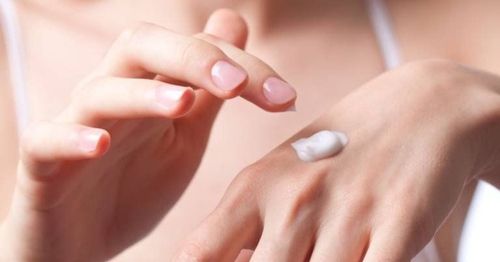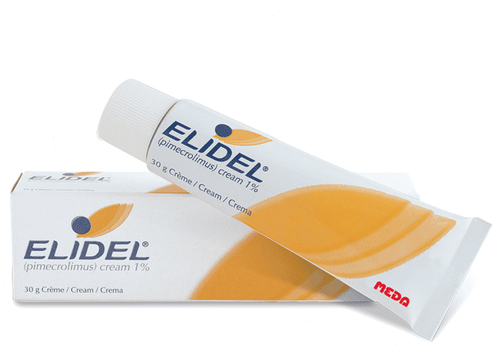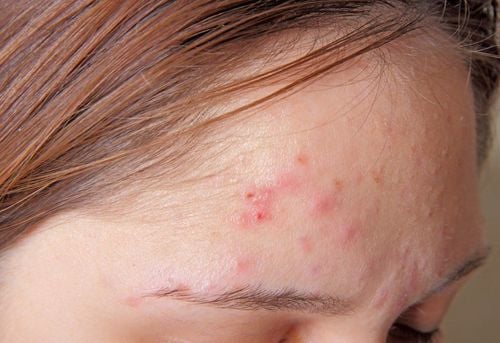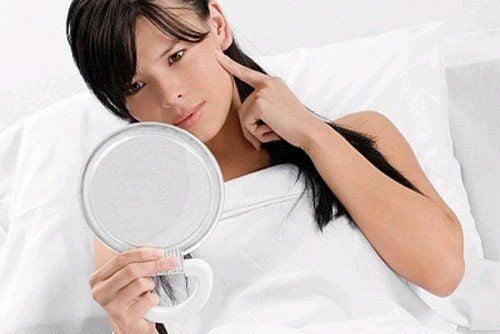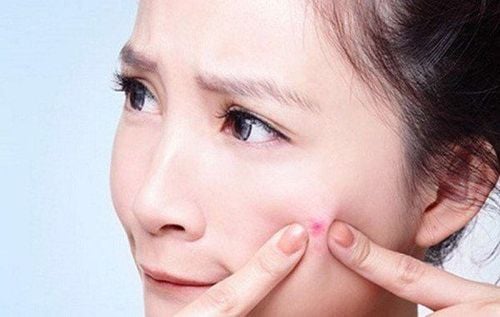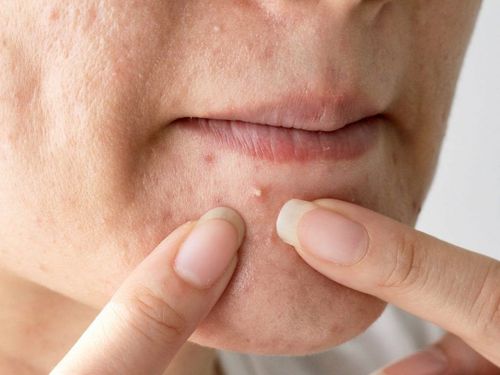This is an automatically translated article.
The article was professionally consulted by Specialist Doctor I Tran Van Sang - Dermatologist - Department of Medical Examination & Internal Medicine - Vinmec Danang International General Hospital.Acne is one of the most common skin diseases globally, often including papules, pustules, whiteheads, blackheads... and occurs most during puberty - the period There are hormonal changes in the body.
1. What is acne?
Acne is known to be a chronic inflammatory skin condition and can cause red spots and pimples anywhere on the body, especially on the face, shoulders, back, neck, chest and upper arms. .Depending on the characteristics and severity of each type of acne, acne can include whiteheads, blackheads, pimples, pustules, nodules...
Acne occurs at all degrees age and can be repeated many times, most often during puberty. Although not dangerous, acne can leave dark spots and scars on the skin.
According to statistics, this type of acne affects 75% of people between the ages of 11 and 30. This is explained because at this age, the sebaceous glands will be highly active, causing skin congestion and leading to inflammation due to the accumulation of dirt, bacteria...
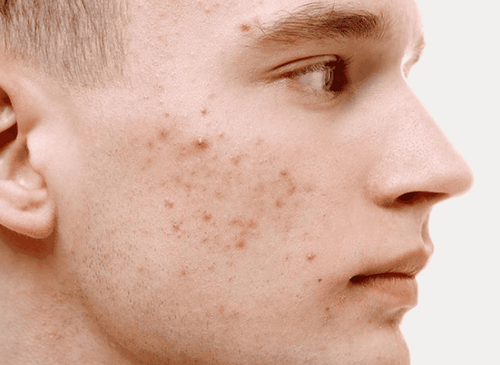
2. Common types of acne
Acne can be classified according to the size, color and degree of pain and swelling of each type of acne. In particular, the following types of acne appear relatively widely:Whiteheads: acne under the skin, small and tiny. Blackheads: more obvious, appear on the surface of the skin and are black in color. This is the result of oxidation of whiteheads on the surface of the skin. Pustules: clearly appear on the surface of the skin, red in color and with white pus at the top. This type of acne is often swollen and often left dark after removing the acne core. Nodules: clearly visible on the surface of the skin, often large in size, hard and painful and uncomfortable. Cysts: clearly appear on the surface of the skin, large, painful and pus-filled acne, can cause scars on the skin when removing acne kernels.
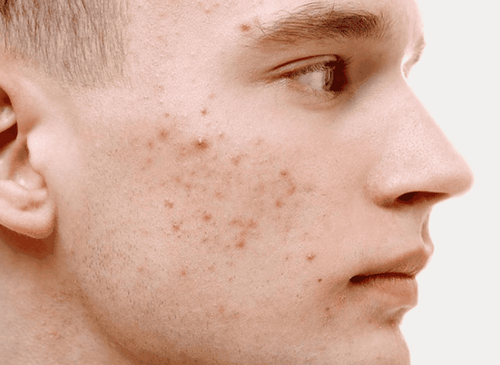
3. What causes acne?
Regarding the mechanism of acne, doctors explain: on human skin, there are pores connected to the oil glands under the skin. These glands produce a fluid called sebum. Sebum can carry dead skin cells through the follicles to the surface of the skin.However, when these follicles become blocked, oil also accumulates under the skin. At that time, dead skin cells, sebum... will accumulate and clump together. Over time, this site can become infected with bacteria, causing swelling and leading to the formation of acne.
The most common type of bacteria that causes acne is called Propionibacterium acnes (P. acnes). This is a bacteria that lives on the skin and is one of the contributing causes of acne.
Some of the following factors can trigger an upper blockage:
3.1 Endocrine factors
A variety of hormonal factors can stimulate the development of acne, of which the main cause is an increase in androgen levels.Androgen is a hormone that has a high increase during adolescence. In women, Androgen is converted to Estrogen at puberty.
When this androgen level is high, the oil glands under the skin also grow stronger and expand, producing more sebum. When sebum is overproduced, it breaks down the cell walls in the pores, allowing bacteria to grow.
3.2 Other factors
In addition, a lot of other agents include:Cosmetics. Mental stress, work... Prolonged fatigue, often staying up late. Women's menstrual cycle. A high-carbohydrate, high-sugar diet can also create a favorable environment for bacteria to grow. Besides, drinking too much cow's milk and dairy products also has a similar effect. Drink alcohol and tobacco. Wearing a lot of makeup can clog pores for a long time.
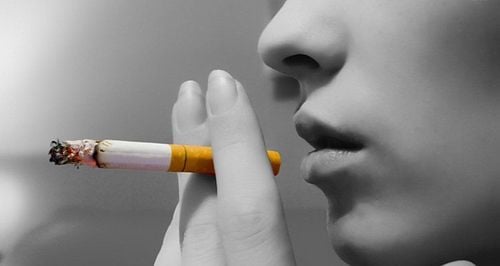
4. Some tips to prevent acne from developing
Acne is one of the inflammatory skin conditions that are very easy to form and recur over and over again, it is very difficult to get rid of them completely. Dermatologists have compiled and given a number of tips to prevent the development of this condition, including:Wash your face with enough frequency. Do not wash your face with soap or cleanser more than twice a day. This will upset the pH balance of the skin and create conditions for bacteria to grow. Do not rub the skin at the site of acne, this will cause the infection to be pushed deeper into the skin, causing, congestion, redness and severe inflammation. Avoid touching your face as much as possible. Keep your phone away from your face when talking on the phone, as there is a potential for bacteria on the phone. Wash your hands often, especially before applying creams, scrubs, or makeup. For acne on the back, shoulders or chest, you should wear loose and airy clothes at home, limit going out. Avoid sun exposure, as it can stimulate the skin to produce more sebum and cause acne to form. Avoid worry, stress... because this is also the cause of acne.

Vinmec International General Hospital is one of the hospitals that not only ensures professional quality with a team of leading medical doctors, modern equipment and technology, but also stands out for its examination and consultation services. comprehensive and professional medical consultation and treatment; civilized, polite, safe and sterile medical examination and treatment space.
If there is a need for consultation and examination at the Hospitals of the National Health System, please book an appointment on the website to be served.
Please dial HOTLINE for more information or register for an appointment HERE. Download MyVinmec app to make appointments faster and to manage your bookings easily.





